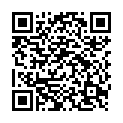|
|
|
| Module code: E518 |
|
3V+1U (4 hours per week) |
|
4 |
| Semester: 5 |
| Mandatory course: yes |
Language of instruction:
German |
Assessment:
Written examination
[updated 12.03.2010]
|
E518. Biomedical Engineering, Bachelor, ASPO 01.10.2011
, semester 5, mandatory course, course inactive since 28.11.2013
E518 Electrical Engineering, Bachelor, ASPO 01.10.2005
, semester 5, mandatory course
|
60 class hours (= 45 clock hours) over a 15-week period.
The total student study time is 120 hours (equivalent to 4 ECTS credits).
There are therefore 75 hours available for class preparation and follow-up work and exam preparation.
|
Recommended prerequisites (modules):
E101 Mathematics I
E201 Mathematics II
E301 Mathematics III
E304 Electrical Engineering Theory I
[updated 12.03.2010]
|
Recommended as prerequisite for:
E613 High-Frequency Engineering Lab Course
[updated 12.03.2010]
|
Module coordinator:
Prof. Dr. Martin Buchholz |
Lecturer:
Prof. Dr. Martin Buchholz
[updated 12.03.2010]
|
Learning outcomes:
After successfully completing this module, students will understand the fundamental differences between high-frequency and microwave engineering. They will have an appreciation of the special features of processing high-frequency signals and of fixed-line or wireless transmissions. Students will have acquired the necessary skills to solve the typical problems that arise in high-frequency engineering such as optimizing power parameters, calculating matching networks and specifying transmission paths and will be able to employ the standard computer-aided computational and design tools.
[updated 12.03.2010]
|
Module content:
1.Introduction to high-frequency engineering
2.Conduction theory
Wave propagation in Lecher lines
3.Impedance transformation matching and transformation circuits
4.Line diagrams
5.Scattering parameters
6.Waveguides
7.Resonators coupled band filters
8.Strip transmission lines Microstrips and striplines
9.Radio transmission theory
Hertz dipole, far field and near field
10.Antennas
11.Passive and active HF components
filters, mixers, isolators, circulators, directional couplers, oscillators
[updated 12.03.2010]
|
Teaching methods/Media:
Lecture notes, PC demonstrations, video projector
[updated 12.03.2010]
|
Recommended or required reading:
Zinke, O.; Brunswig, H.: Hochfrequenztechnik I Hochfrequenzfilter, Leitungen, Antennen, Springer, 2000
Zinke, O.; Brunswig, H.: Hochfrequenztechnik II Elektronik und Signalverarbeitung, Springer, 1999
Meinke, H.; Gundlach, F.: Taschenbuch der Hochfrequenztechnik, Springer, 2006
Pehl, E.: Mikrowellentechnik Band I Wellenleitungen und Leitungsbausteine, Hüthig, 2006
Pehl, E.: Mikrowellentechnik Band II, Hüthig, 2002
Voges, E.: Hochfrequenztechnik, Hüthig, 2003
Geißler, R.; Kammerloher, W.; Schneider, H.-W.: Berechnungs- und Entwurfverfahren der Hochfrequenztechnik, Vieweg Verlag, 2002
Detlefsen, J.; Siart, U.: Grundlagen der Hochfrequenztechnik, Oldenbourg
Unger, H.-G.: Elektromagnetische Theorie für die Hochfrequenztechnik, Hüthig Verlag, 2002
Kark, K.: Antennen und Strahlungsfelder Elektromagnetische Wellen auf Leitungen, im Freiraum und ihre Abstrahlung, Vieweg, 2005
Carr, J.: RF Components and Circuits, Newnes, 2002
Heuermann, H.: Hochfrequenztechnik Lineare Komponenten hochintegrierter Hochfrequenzschaltungen, Vieweg, 2005
[updated 12.03.2010]
|


